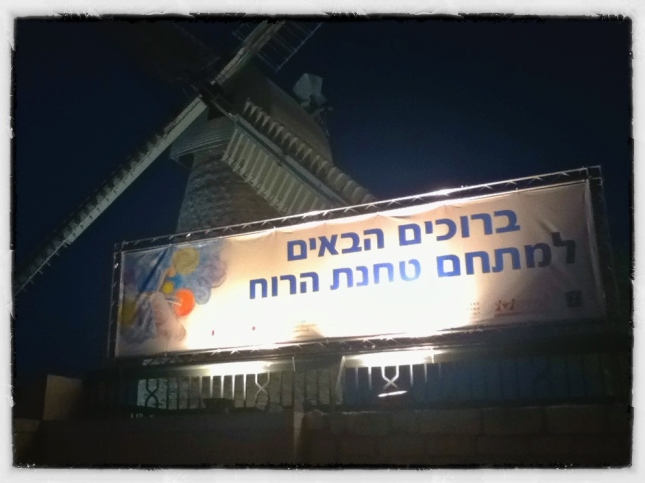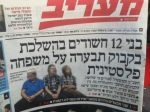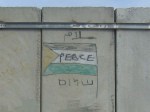Last week, the Palestinian-Israeli Peace NGO Forum launched a new campaign: “50 Reasons to Say Yes to a Palestinian State” Their aim: to garner Israeli public support for the ongoing Palestinian UN bid for statehood and the 2-state solution. After a summer of energized activism on social issues (Israeli social justice protests), unseen in modern Israeli history, it’s time for the country to re-engage with Israeli-Palestinian conflict.

50 Reasons to Say Yes to a Palestinian State
We Already Live in 2-States
Okay, so it’s a hard sell. Israeli society has become so detached from the Palestinian issue that it’s a tough to ask getting the average Israeli to proactively engage with the issue. With the social justice campaign the average Israeli didn’t need an NGO manifesto to realize that they were suffering – the growing inequalities in Israeli society are easily visible. But for most Israelis, the Palestinian issue is a distant one that has little or no influence on their daily lives. For them, even though they might not admit to it, the partition between Israel and the West Bank & Gaza (physically and mentally) is so stark that it’s almost as if we live in two separate states. Unfortunately it’s only the Israeli side that can enjoy the freedoms that go hand-in-hand with being a fully sovereign and independent state,
For this reason the campaign has produced a list of 50 reasons why a 2-state solution is worth fighting for; not only as means to end the conflict but also – in my opinion – to highlight how the more popular fight, the struggle for social justice in Israel, is both unachievable and unsustainable without the succesful creation of a Palestinian state.
Don’t Lobby at the UN; Lobby the Israeli Public
Re-hashing the 101 arguments for and against the Palestinian UN bid is pointless. Everyone knows that once the dust settles and the Israeli and Palestinian leaders return home, with or without some form of UN recognition, the facts on the ground will remain much the same. Of course gaining the support of the international community will provide the Palestinians with added leverage in future negotiations, but the UN decision is essentially a side-show, a distraction. Why are we getting worked up over whether far-away countries like Gabon or Colombia vote for or against Palestine? The real decision-makers, the parties all proponents of the 2-state solution should be lobbying intensively are not hidden away in the bowels of the UN, but right here, down on the streets of Tel Aviv and Jerusalem and up and down this fraught land. Only an Israeli public convinced of the benefits of a 2-state solution can truly grant Palestinians the state they legitimately demand – any amount of international pressure and isolation will do little to change the current inflexible Israeli position.
Of course trying to convince the Israeli public to support a 2-state solution is a different matter entirely. Whilst polls indicate that a majority of Israelis are willing to accept some form of 2-state solution getting any percentage of this majority to demand of their government an end the occupation has failed – hence the ability of the Netanyahu government to continue, with ease, the policy of maintaining the status quo.
It’s for this reason that campaigns such as the “50 Reasons to Say Yes to a Palestinian State” are so important.
The Reasons:
Here are just some of the reasons – the full list can be found here: 50 Reasons to Say Yes to a Palestinian State). They also have a Facebook page.
The Israeli Peace NGO Forum is launching a campaign in support of Palestinian statehood leading up to the Palestinian Authority’s request for recognition in the UN General Assembly, planned for September 20th 2011.
3. We will be available to nurture social solidarity and rehabilitate Israeli society.
5. The establishment of a Palestinian state will open the door for all of Arab world to recognize Israeland implement the decision of 22 Arab League member states to normalize relations with Israel.
9. The establishment of a Palestinian state will end the occupation that corrupts us and harms Israel’s strength.
11. The Palestinian state will allow a dramatic improvement in relations between Jews and Arabs inside Israel, allowing us to engage in processes that will bring equality between Jews and Arabs in Israel.
14. Establishing an agreed upon Palestinian state will silence those who are using the Palestinians as a reason for war and boycotts against us.
19. In Tel Aviv, Ramallah,Cairo and Damascus a young, secular, technological generation is growing, that believes in its own power to affect change and despises governments’ falsely injected fears.
21. Only a Palestinian state can prevent us from becoming the next apartheid state.
26. Establishing a Palestinian state is an act of justice. Palestinians are a people and deserve a state.
31. The two-state solution is supported by both Israelis and Palestinians in all surveys in recent years.
32. It will create great economic opportunities for Israelis and the entire Middle East that do not exist today because of the conflict.
40. If South Sudan can have a state, why not Palestine?
42. Because you can not demand rights for Israelis and not recognize Palestinians’ right to a state.
46. We will finally live in a democratic moral country which respects its minorities with equal rights.
48. Because a situation of military occupation and the ‘settlers’ state can not continue forever, it endangers us, and does not correlate with universal humanistic Jewish values.
50. Because it is the only viable solution, and you know it.
31.767000
35.233000









